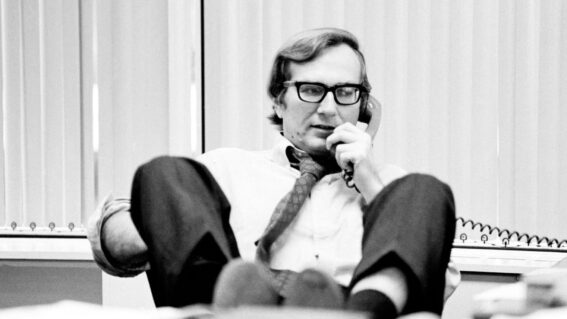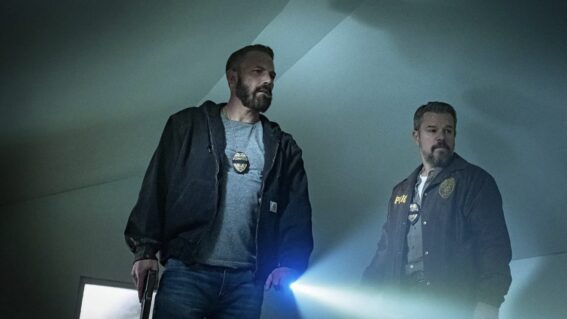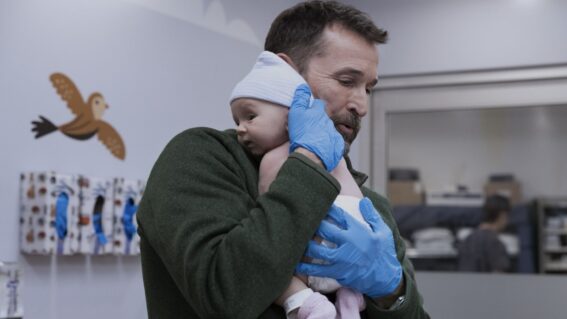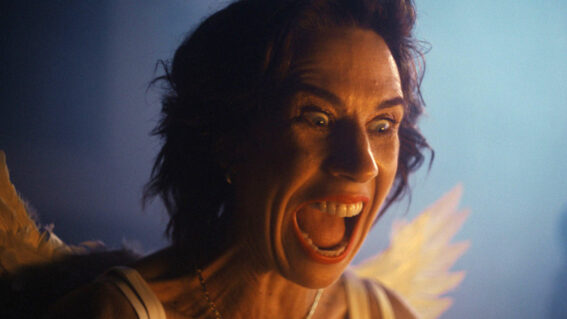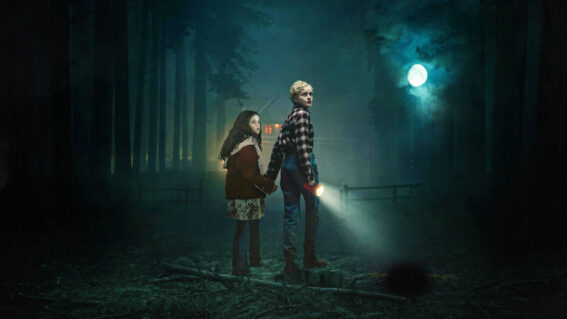Q&A with Director Paul Janman – ‘Tongan Ark’
Paul Janman is the director of Tongan Ark, a New Zealand-made documentary exploring the ‘Atenisi Institute, which is a unique Tongan university that embraces the teachings of ancient Greek philosophers, setting it apart from church and state. The film is doing the rounds at this year’s NZ International Film Festival. We fired off a number […]
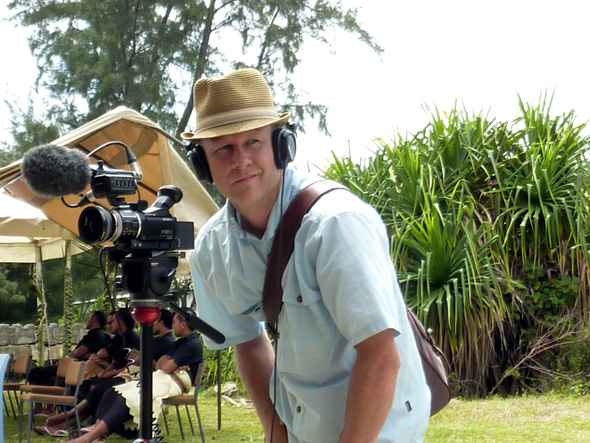
Paul Janman is the director of Tongan Ark, a New Zealand-made documentary exploring the ‘Atenisi Institute, which is a unique Tongan university that embraces the teachings of ancient Greek philosophers, setting it apart from church and state. The film is doing the rounds at this year’s NZ International Film Festival.
We fired off a number of questions for Paul to answer…
FLICKS: Hello from Flicks. How are you doing?
JANMAN: Hi, we’re doing great thank you!
What should people expect from Tongan Ark?
Tongan Ark is a bold documentary view on the Pacific Kingdom of Tonga, the charismatic personality and ideas of the late great Futa Helu and his band of free thinkers at the school of ‘Atenisi (Athens) – ‘an island within an island’. It is also a sensuous immersion in Futa Helu’s ideas, his family and the social political environment of modern Tonga.
We cover everything from Futa’s key philosophical concepts, the operatic performers that he inspired and the tragedy of the riots of 2006, which caused the burning of a large part of downtown Nuku’alofa. We even include a local beauty contest. As far as I know, it is the first documentary of its kind to come out of this part of the Pacific.
What are you trying to convey with the film?
What I’m most interested in are the paradoxes and contradictions inherent in modern Pacific life. As Futa would put it, ‘the world is infinitely complex’ and you discover many twists and turns when you choose to spend an extended period of time in a place like Tonga and particularly ‘Atenisi. If you have the privilege of a sustained relationship with your subjects then there are all kinds of surprising revelations and transformative experiences you can have. I have tried to convey some of these possibilities in the film.
I also wanted to do tribute to a very brilliant and innovative man in the person of Futa Helu and to highlight his movement, which has been much misunderstood even in Tonga. But I think that the kind of informed freedom that ‘Atenisi embodies also has global significance in a world of destructive speed, consumerism and education motivated by economic drivers rather than real curiosity and ‘the play of the mind’.
I wanted to express the miracle that spaces like ‘Atenisi can continue to exist.
Occasionally I would follow [Futa] out to a building made of coral rock surrounded with wandering pigs and dogs. I sometimes had the impression that I was trailing a latter day Socrates…
Could you share your strongest memory from filming?
Apart from the obvious trepidation of filming on a street where people are burning the town down on a remote island, I think the most important memories for me are the experiences that I had as part of the family at ‘Atenisi – the long, slow and dignified days in Futa’s household. Occasionally I would follow him out to a building made of coral rock surrounded with wandering pigs and dogs. I sometimes had the impression that I was trailing a latter day Socrates who melded very lofty ideas with the solidity of intention that comes from living in a humble material environment. Futa’s presence was magnetic.
What first drew you to the ‘Atenisi Institute?
I studied anthropology with ‘Okusitino Mahina at Auckland University and he introduced me to some of the central ideas of Futa’s philosophy – the emphasis on the 5th century BC philosopher Herakleitos and the doctrine of ‘infinite complexity’, the importance of rhythm in art and the objective spirit of Tongan thinking. When a job came up at ‘Atenisi institute, my wife Echo and I took the opportunity to go and study from the source.
What thoughts about Aotearoa came to mind amongst this unconventional mix of cultures?
I think the lesson that Futa has for Aotearoa/New Zealand is about real biculturalism, by which I mean a respectful and critical conversation between cultures. Futa was a manifestation of the profound Polynesian intelligence that can accommodate great ideas from Europe and twist them to their own ends. Like the Maori prophets Papahurihia and others, Futa took European ideas more seriously than many Europeans do and he used them to criticize what both Europeans and Tongans were doing to each other.
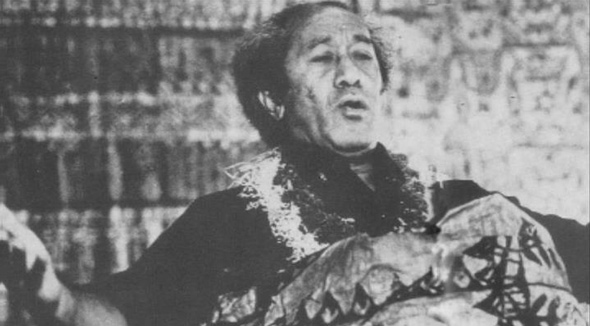
- Futa Helu, founder of the ‘Atenisi Institute.
If you could make a film about anyone living or dead who would it be?
I would have liked to record the life of Herakleitos of Ephesos. He was a strange hermetic visionary and probably a little bit mad. I’ve sat with some of these kinds of people on pavements or temples and little nooks in distant corners of the Earth. Otherwise, I’m interested in what the average person does to stop going insane in the Auckland suburbs.
What was the last great film you saw?
I watched Robert Flaherty and F.W. Murnau’s 1931 Tahitian epic Tabu a couple of nights ago. It’s a beautiful silent tragedy featuring all local actors – Tahitians and a few Chinese. It’s quite romanticised of course but very nuanced at the same time. Flaherty actually thought that the final product was too westernised but I think it has the same tragic-ecstatic ring as many Polynesian love stories. I think this film basically ruined Flaherty’s career in Hollywood once and for all.
What’s the best piece of advice you’ve ever been given?
Pessimism of the intellect, optimism of the will – Antonio Gramsci
What are you thinking about doing next?
I’m now working with poet, blogger and sociologist Scott Hamilton on a space-time odyssey down the Great South Road and also a study of an ailing South Alabama jukebox company.






